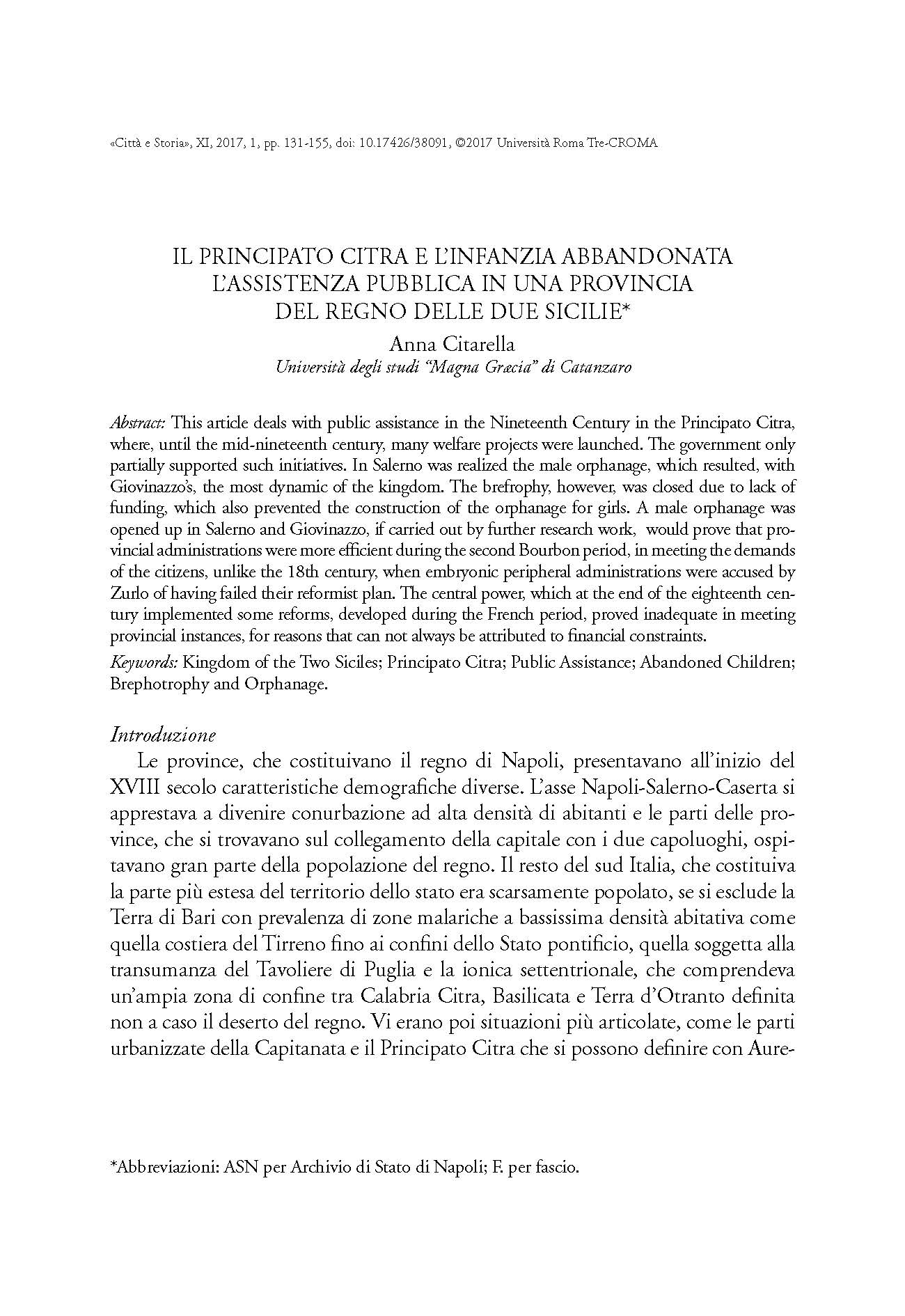Il principato Citra e l’infanzia abbandonata. L’assistenza pubblica in una provincia del regno delle Due Sicilie
6,00 €
This article deals with public assistance in the Nineteenth Century in the Principato Citra,
where, until the mid-nineteenth century, many welfare projects were launched. The government only
partially supported such initiatives. In Salerno was realized the male orphanage, which resulted, with
Giovinazzo’s, the most dynamic of the kingdom. The brefrophy, however, was closed due to lack of
funding, which also prevented the construction of the orphanage for girls. A male orphanage was
opened up in Salerno and Giovinazzo, if carried out by further research work, would prove that provincial
administrations were more efficient during the second Bourbon period, in meeting the demands
of the citizens, unlike the 18th century, when embryonic peripheral administrations were accused by
Zurlo of having failed their reformist plan. The central power, which at the end of the eighteenth century
implemented some reforms, developed during the French period, proved inadequate in meeting
provincial instances, for reasons that can not always be attributed to financial constraints.
This article deals with public assistance in the Nineteenth Century in the Principato Citra,
where, until the mid-nineteenth century, many welfare projects were launched. The government only
partially supported such initiatives. In Salerno was realized the male orphanage, which resulted, with
Giovinazzo’s, the most dynamic of the kingdom. The brefrophy, however, was closed due to lack of
funding, which also prevented the construction of the orphanage for girls. A male orphanage was
opened up in Salerno and Giovinazzo, if carried out by further research work, would prove that provincial
administrations were more efficient during the second Bourbon period, in meeting the demands
of the citizens, unlike the 18th century, when embryonic peripheral administrations were accused by
Zurlo of having failed their reformist plan. The central power, which at the end of the eighteenth century
implemented some reforms, developed during the French period, proved inadequate in meeting
provincial instances, for reasons that can not always be attributed to financial constraints.

